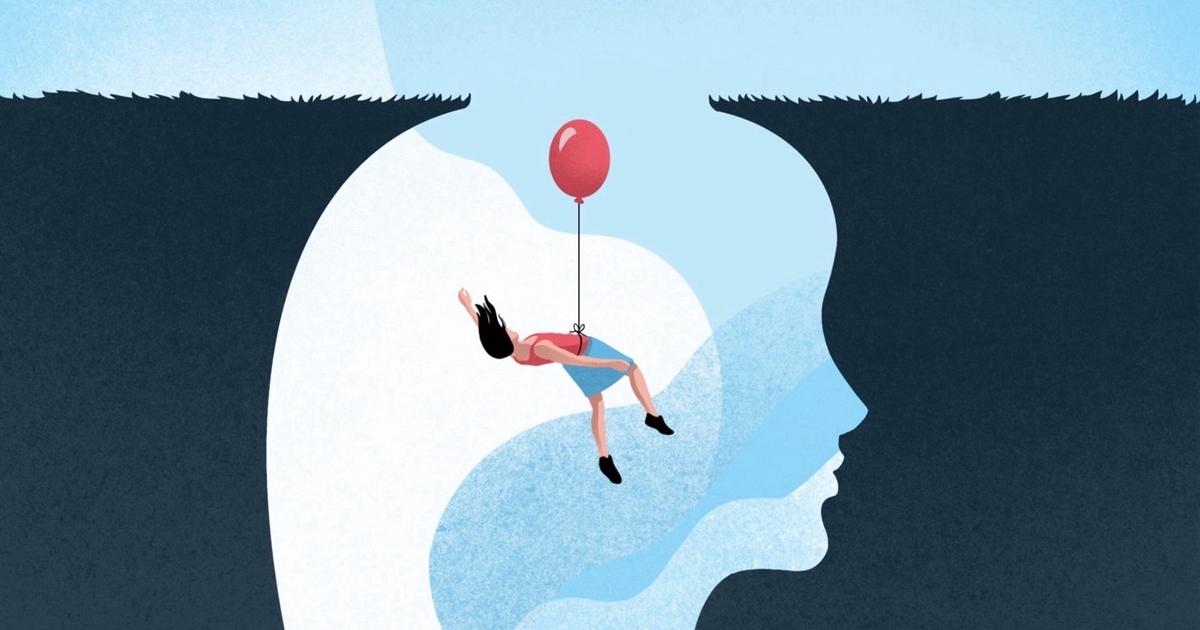Although the number continues to decline, suicides in Germany are still a major social and health problem. According to the Federal Statistical Office, 9241 people died in 2017 - more than 25 per day. Almost 7,000 of them were men, 2,250 women.
About as many people die as a result of suicide, such as traffic accidents, violent crime and the misuse of illegal drugs. The number of people trying to kill themselves is even higher.
It can help people with suicidal thoughts, even if many can not recognize this in the situation itself. The most important information for those affected and their relatives on World Suicide Prevention Day.
How well can people who have suicidal thoughts be helped?
Help offers can prevent suicide. "In the foreground is often not the desire to die, but the idea, so as not to be able to continue to live," says psychiatrist Christiane Schlang, who researches at the University of Frankfurt on suicide prevention.
More than 90 percent of people who commit suicide suffer from an actually treatable condition. Especially in people with mental illness, the path to suicide is not a rational decision, but a symptom of the disease, says Schlang. Help is therefore possible. Suicidal thoughts, for example, are a very common symptom of depression.
What signs of suicide are there?
There are often signs that someone is thinking about suicide. True, few people openly announced their intentions, Schlang said. However, many give indirect hints, express feelings of hopelessness, say phrases like: "It does not make sense any more" or "At some point there must be an end".
According to the German Depressionshilfe, sufferers sometimes also arrange their affair, for example, give away their valuables or say goodbye to close people.
Nevertheless, it is not possible to predict suicide accurately. Some sufferers acted out of an impulse, then there are no external signs at all, says Schlang. And those who are determined to commit suicide, often seem calmer, steadier and less desperate. People could then come to the deceptive conclusion, it goes up again.
What can relatives do?
It is important to take indications or hints seriously and to address those affected. Some relatives shy away from this because they suspect that the question of emotional state might encourage those concerned in their suicidal intentions. This is not the case, says Schlang: "On the contrary, many sufferers feel a sense of relief when they can talk about their thoughts and feelings, and then they know that they are not alone."
How should relatives approach those affected?
"One should listen attentively: ask instead of say", advises Schlang. It makes sense to pick up the words of the person concerned and say, for example: "You have stated that you can no longer see a way out, that worries me."
In addition, she recommends asking those affected how acutely they feel their pressure to act. With questions like "Can you give yourself some more time to find another way out of the crisis?" Relatives may signal that they believe that there is a solution other than suicide, and that those affected have to rethink their intentions.
It is also extremely important to motivate those affected to seek professional help - even if that is often a big challenge. If in doubt, relatives should take responsibility and accompany the affected person to the doctor or to a clinic, advises the German depression assistance.
What services are there?
Those who think or believe in suicide should know that they need help quickly. There is a wide range of assistance, ranging from outpatient services and anonymous advice by telephone or online to inpatient treatment. The German Society for Suicide Prevention has put together the following services:
- Telephone counseling : At 0800/111 0 111 and 0800/111 0 222, victims and their families can seek help anonymously around the clock - free of charge and nationwide. Telephone counseling also provides support via e-mail and chat as well as in person through their 27 counseling centers.
- Social Psychiatric Services : In every city and community, help seekers can turn to a social psychiatric service. The employees advise and provide further help if needed. The services are usually assigned to the health authorities. Contact details such as address and telephone number can be obtained via the municipal office.
- Deutscher Kinderschutzbund : The DKSB operates two free hotlines that can be reached throughout Germany: the parents' telephone at 0800/111 0 550 and the child and youth telephone at 0800/111 0 333. At fixed times, employees advise parents and young people on any type of worry.
- German depression relief : On the website you can search for crisis services and advice centers depending on the location. In an emergency, however, one should always dial the emergency number 112.
What happens if someone denies help and relatives are afraid that the person is in acute danger?
"If a person is directly threatened by suicide, but he is in any way no longer accessible via a conversation and is not ready to seek help together, then the ambulance should be contacted to protect him," writes the German Depressionshilfe. The person affected should not be left alone until the doctor arrives.









/cloudfront-eu-central-1.images.arcpublishing.com/prisa/UGT3A2CDINB3LN3NMTZ4RJJOTU.jpg)

/cloudfront-eu-central-1.images.arcpublishing.com/prisa/S7ERVSCT4FUVX6R7TUVBDNTH5Y.jpg)



